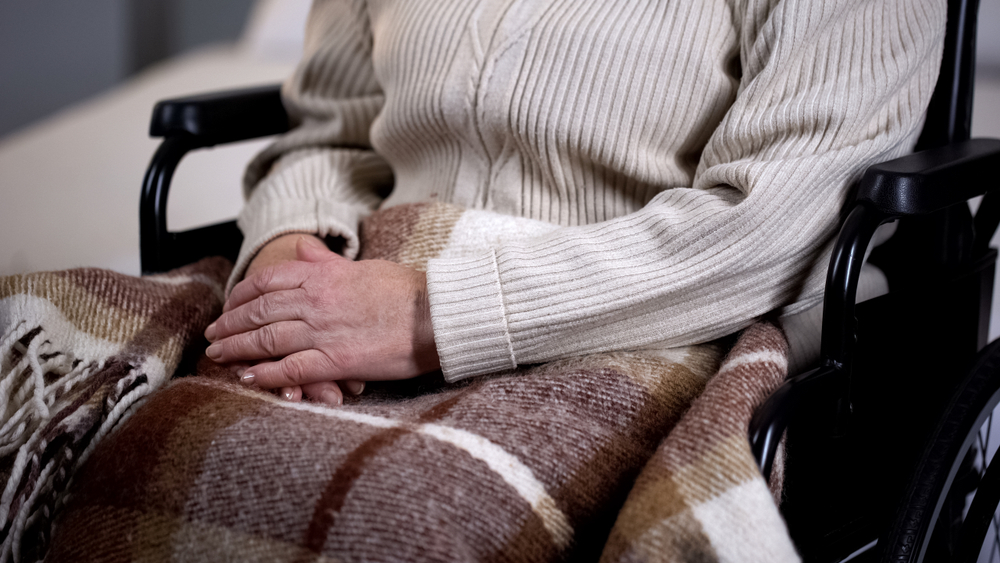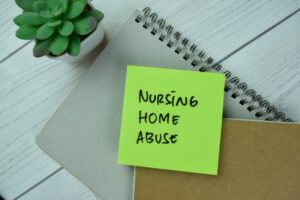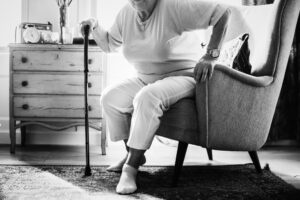Why Choose Midwest Injury Lawyers for Your Nursing Home Injuries Claim?
Selecting the right legal representation for a nursing home injury case is not just about finding a lawyer. It’s about choosing an advocate who understands the unique challenges and sensitivities of these situations.
Here’s why you should choose a nursing home injury attorney from Midwest Injury Lawyers:
- Personal Commitment: At Midwest Injury Lawyers, we will handle your case with a deep personal commitment to you, your family, and your future. You can access us easily and at any time, and we will keep you informed about the progress of your case throughout.
- Trust and Transparency: We believe in building a trust-based relationship with our clients. Our team will provide honest advice about the necessity of legal representation and the potential directions your case could take, ensuring you make informed decisions at every step.
- No Upfront Cost: We work on a contingency basis. This means you will not pay any fees unless we win your case. This approach makes quality legal services accessible to everyone, regardless of economic background.
- Proven Track Record: Over the years, we have secured tens of millions of dollars in compensation for our clients. Our success is a testament to our dedication and skill in handling personal injury cases, including those involving nursing home injuries.
- Comprehensive Legal Support: We provide thorough and assertive representation, from investigating the incident to negotiating settlements and, if necessary, taking your case to court. Our goal is to achieve the maximum possible compensation for you.
- Client-Centric Service: Our commitment to professionalism and service has made for many satisfied clients. We will extend the same level of dedication and support to your case, striving to secure the justice and compensation you deserve.
What Is the Potential Value of a Nursing Home Injury Claim?
Each nursing home injury claim is unique, and the amount of compensation it could result in depends on the specific circumstances of the case.
A knowledgeable personal injury attorney can assess your specific situation and provide an accurate estimate of your claim’s potential value, which might vary based on:
- Medical Expenses: This includes the costs of immediate and long-term medical care necessary to treat nursing home injuries. It covers hospital stays, medications, physical therapy, and any specialized medical equipment or care services the resident needs for their recovery.
- Pain and Suffering: This factor addresses the physical pain and emotional distress the resident experienced due to their injury. It takes into account the severity of the discomfort and the psychological effect of the injury, such as anxiety, depression, or loss of enjoyment in daily activities.
- Lost Income: If family members had to take time off from work to care for their injured loved one, they can claim compensation for this loss. In some cases, it might also be possible to claim money for lost earning potential if a family member gives up their career to be a caregiver.
- Quality of Life: This factor relates to the decline in the resident’s overall quality of life due to their injuries. This could include the loss of independence, decreased mobility, or the inability to engage in previously enjoyable activities or social interactions.
Nursing Home Abuse and Neglect Statistics
Nursing home abuse and neglect is more prevalent than many realize. The following eye-opening statistics offer insights into the types of abuse and injuries that occur in nursing homes in Joliet and throughout the U.S.:
Approximately 10 percent of people over 65 experience some form of abuse, with higher rates in long-term care facilities like nursing homes.
Despite strict regulations, experts estimate only one in 14 cases of elder abuse in nursing homes gets reported to the appropriate authorities.
Victims of abuse in nursing homes are nearly three times more likely to require hospitalization compared to other residents. These victims also face significantly higher mortality rates.
Physical abuse constitutes 29 percent of nursing home abuse cases, followed by resident-to-resident abuse at 22 percent and gross neglect at 14 percent. Financial abuse and sexual abuse each accounted for seven percent of cases.
A staggering 40 percent of nursing home staff polled admitted to behaving in a way that constitutes psychological abuse within the past year, including yelling, swearing, or inappropriate isolation of residents.
Half of nursing home staff members also admitted to mistreating elderly patients, including 17 percent of certified nursing assistants (CNAs) reporting that they pushed, shoved, or grabbed residents.
Surveys reveal that 44 percent of nursing home residents reported experiencing abuse, and 95 percent witnessed or experienced neglect.
Contributing to this issue is the fact that up to 90 percent of nursing homes lack adequate staffing. A single nurse’s aide often cares for up to thirty patients simultaneously, though the care ratio should be between 1:3 and 1:6.
Types of Nursing Home Abuse and Neglect
Nursing home abuse is a serious and unfortunate reality that affects many elderly residents. It can take various forms, each harmful in its own way.
Physical Abuse
Physical abuse in nursing homes involves any intentional act that causes injury or physical discomfort to a resident. This includes actions like hitting, slapping, pushing, kicking, or the misuse of medications or restraints.
Signs of such abuse are not limited to visible injuries like bruises, cuts, or broken bones. They can also include sudden changes in behavior, flinching at physical contact, or fear of being alone with caregivers.
Psychological Abuse
This form of abuse targets the mental and emotional well-being of residents. It encompasses actions like verbal assaults, threats, belittling, intentional isolation, or ignoring the resident. Psychological abuse is often more subtle than physical abuse, making it harder to detect.
Residents experiencing psychological abuse might show signs such as withdrawal from social activities, sudden changes in mood, unexplained fear or anxiety, and reluctance to speak in front of caregivers. This type of abuse is just as damaging as physical harm, compromising mental health and quality of life.
Sexual Abuse
Sexual abuse in nursing homes is a particularly disturbing violation involving any form of non-consensual sexual contact or exploitation. This can range from unwanted touching to more severe abuses like sexual assault or rape. Victims are sometimes unable to communicate what has happened due to disabilities or fear.
Signs of nursing home sexual abuse include physical indicators like bruises or bleeding and emotional and behavioral changes such as anxiety, withdrawal, or unusual sexual behaviors.
Financial Abuse
Financial abuse is the exploitation of a resident’s financial resources. This could include stealing money or valuables, misusing credit cards, forging signatures, or coercing changes in wills or power of attorney.
Indicators of financial abuse can include sudden inability to pay bills, unexplained disappearance of funds or valuables, unusual bank withdrawals, and unexpected changes in estate plans. This type of abuse can significantly impair the resident’s financial security and independence.
Neglect
In a nursing home, neglect involves the failure to provide the necessary care for a resident’s health and well-being. It can manifest in various forms, including ignoring basic needs like food, water, or hygiene, failing to provide medical care for existing health problems, or not assisting with personal hygiene.
Neglect can lead to serious health issues, from malnutrition to severe medical complications. Signs of neglect include unsanitary living conditions, bedsores, frequent infections, dehydration, and a general decline in health.
Unlike other forms of abuse, neglect can sometimes result from inadequate staffing or training rather than deliberate harm. Still, its consequences for residents are no less severe.
Common Nursing Home Injuries
Nursing home residents are unfortunately susceptible to many different injuries, some of which arise from abuse or neglect.
Common examples of nursing home injuries include:
- Bedsores (pressure ulcers)
- Fall injuries
- Head injuries
- Broken hips
- Other bone fractures
- Contusions (bruises)
- Lacerations (cuts)
- Malnutrition
- Dehydration
- Aspiration pneumonia
- Infections
- Burns
- Choking
- Medication errors
- Sprains and strains
- Dislocations
- Dental injuries
- Septicemia (blood poisoning)
- Urinary tract infections
- Contractures (muscle tightness)
- Emotional trauma
- Sepsis
- Hypothermia or heatstroke
- Injuries from restraint use
Demanding Fair Compensation for Nursing Home Injuries
There are often significant financial implications to a nursing home injury, in addition to the underlying physical and psychological wounds. Medical bills can quickly accumulate, and some residents need ongoing care, which drives up costs even more.
Demanding fair compensation for nursing home injuries is a challenging process that requires navigating complex legal and healthcare systems.
One of the main difficulties in securing fair compensation is proving the extent of the injury and its link to negligence or abuse in the nursing home. This often involves gathering detailed medical records, eyewitness accounts, and expert testimonies. Families often find this process overwhelming.
This is where a lawyer can make all the difference. A nursing home injury attorney understands the laws that apply in these cases and knows how to build a strong case.
They can effectively negotiate with nursing homes and their insurance providers, many of whom have their own legal teams dedicated to minimizing their liability and the amount of compensation they have to pay out.
An attorney can also quantify the full extent of the personal and financial harm the resident suffered. This goes beyond immediate medical expenses, encompassing long-term care costs, emotional distress, and more.
If the nursing home or its insurance provider refuses to offer a fair settlement, a lawyer can take them to court and demand a full payout at trial.
Nursing home injury lawyers take the burden off families by handling all the legal details of these emotionally draining cases, allowing family members to focus on the care and recovery of their loved ones. They protect the rights of injured residents and work tirelessly to secure the compensation that rightfully belongs to them.
What to Do After a Nursing Home Injury
If you suspect or know that your loved one has suffered from nursing home abuse or neglect, you should take immediate action to protect your loved one. First and foremost, ensure the resident’s safety.
If the situation is life-threatening, call 911 or seek emergency medical help. If the danger is not immediate, consider moving the resident to a safe environment, such as with a family member or to another care facility.
Next, start gathering evidence. This includes documenting any physical signs of abuse or neglect, such as bruises or unexplained injuries, as well as any changes in the resident’s behavior or emotional state.
Take photos of any injuries and the resident’s living conditions if they are unsanitary or unsafe. Also, keep a record of conversations with the resident about how the nursing home staff has treated them and any complaints they have made.
Finally, contact a Joliet nursing home injuries lawyer. A lawyer can offer legal advice, investigate the situation further, and file a complaint or lawsuit on your and your loved one’s behalf. They will work to protect your loved one’s rights and hold all responsible parties accountable for their actions.
Contact Our Joliet Nursing Home Injuries Attorneys Now
Has your loved one suffered an injury in a nursing home in Joliet, Illinois? Don’t wait to seek the help your family deserves.
Contact Midwest Injury Lawyers today at (815) 714-6131 for your free consultation with our Joliet nursing home injury lawyers. Our experienced team is ready to listen to your story, explain your legal options, and provide the guidance you deserve.
Joliet Office
210 N Hammes Ave
Unit 205 C
Joliet, IL 60435
(815) 714-6131
A Word from our Work Injury Attorney
Receiving maximum compensation for workplace injuries requires knowledge of workers’ compensation law, as well as the ability to identify any negligent third parties who may share some responsibility for causing an injury. It is crucial to get advice from an attorney who understands how to obtain quick and sufficient compensation for a workplace injury.
– Chester L. Cameron

Request a Free Consultation
Tell our experienced team about your accident and/or injuries. One of our personal injury attorneys will contact you to schedule a free case evaluation. Remember: you won’t pay for anything unless we secure a compensation on your behalf.
Call (312) 786-5881 or send us a message online to get started.



